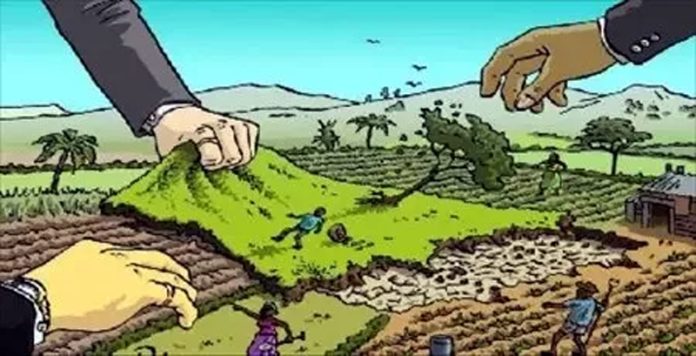‘Wrong precedence will lead to escalation of illegal occupations’
Mohinder Verma
JAMMU, Feb 12: A Joint Committee of senior bureaucrats and experts of top institutions of the country has opined that no compensation can be paid in respect of structures built on the encroached State land in the Union Territory of Jammu and Kashmir even if they suffer damages due to natural calamity.
The Joint Committee was dealing with the issues which came to the fore following developing of cracks in several houses in Thathri area of Doda district and subsequently shifting of several families to safer locations in the month of February last year and in the light of the directions passed by the National Green Tribunal.
The National Green Tribunal in its order dated December 11, 2023 had observed, “we find that occupation of the land in question and raising of construction by the affected persons has been allowed due to inaction, inefficiency or lack of monitoring or supervision on the part of Union Territory and its authorities and stakes have been allowed to be created on the land in question for the reasons attributal to inaction of the Government. Hence UT cannot absolve itself of responsibility of compensating the people who have suffered loss or damages”.
Thereafter, a Joint Committee headed by the Chief Secretary and comprising of experts of Kumaon University, Wadia Institute of Himalayan Geology Dehradun, GB Pant National Institute of Himalayan Environment, National Institute of Hydrology, Roorkee, Space Applications Centre Ahmedabad, National Institute of Rock Mechanics Bengalore and Regional Officer Central Pollution Control Board Chandigarh held deliberations on various important issues.
The Joint Committee observed that the structures have been made on State land and in violation of Municipal norms as such they are illegal. “These have been done with full knowledge and connivance of the private persons and public servants mandated with the responsibility of ensuring rule of law”, the Committee said, adding neither the private owners nor the concerned public servants can absolve themselves of the responsibility.
Observing that there is no policy/norm under which the damages to illegal structures could be compensated, the Joint Committee has opined that no compensation is payable even in cases where such illegal structures are compulsory acquired under the Land Acquisition Act.
“There are number of such vulnerable areas of State land which have been encroached over the past years and constructions raised illegally by occupants not only in this affected area but throughout the Union Territory of Jammu and Kashmir”, the members of Joint Committee said, adding “proper arrangements are required to be made to deal with the issue of illegal occupation and due consideration should be given to the fact that actions taken in the curreant case may lead to a situation where a precedence is set for future incidents”.
It is pertinent to mention here that relief as per SDRF norms has already been provided and land under PMAY (G) given to the landless as per the norms.
The participating officers as well as expert members felt that if payment of compensation is considered in this case then there is a possibility that it may become a precedent which may lead to escalation of further encroachments and illegal occupations. “Hence, there is a need for the Union Territory Government to circumspect in this matter in order to avoid opening a Pandora’s box. This should be dealt with as a policy matter and necessary guidelines should be framed before proceeding further”, the experts said.
Even Law Secretary is of the opinion that since there are no rules/guidelines at present which could be followed by the UT Government, proceeding to pay compensation will be setting a new precedence in the Union Territory.
In the absence of rules/guidelines it was felt that the issues like whether any structure raised illegally on State land should be compensated if damaged at the cost of the public exchequer, what principal should be used for assessment of the assets whether construction, agriculture, horticulture or other assets that may get damaged on the State land occupied illegally by encroachers need to be addressed by taking policy decision.
The Joint Committee has unanimously placed all these issues and observations before the National Green Tribunal for providing guidance on the matter in which the UT should be required to proceed further.


